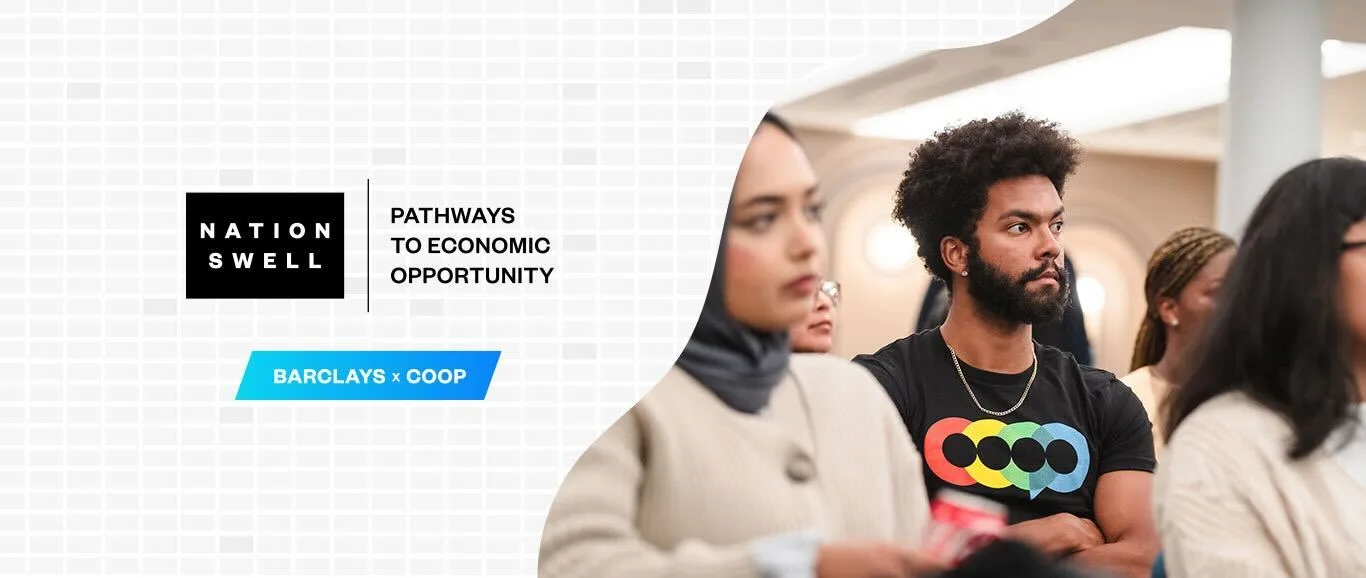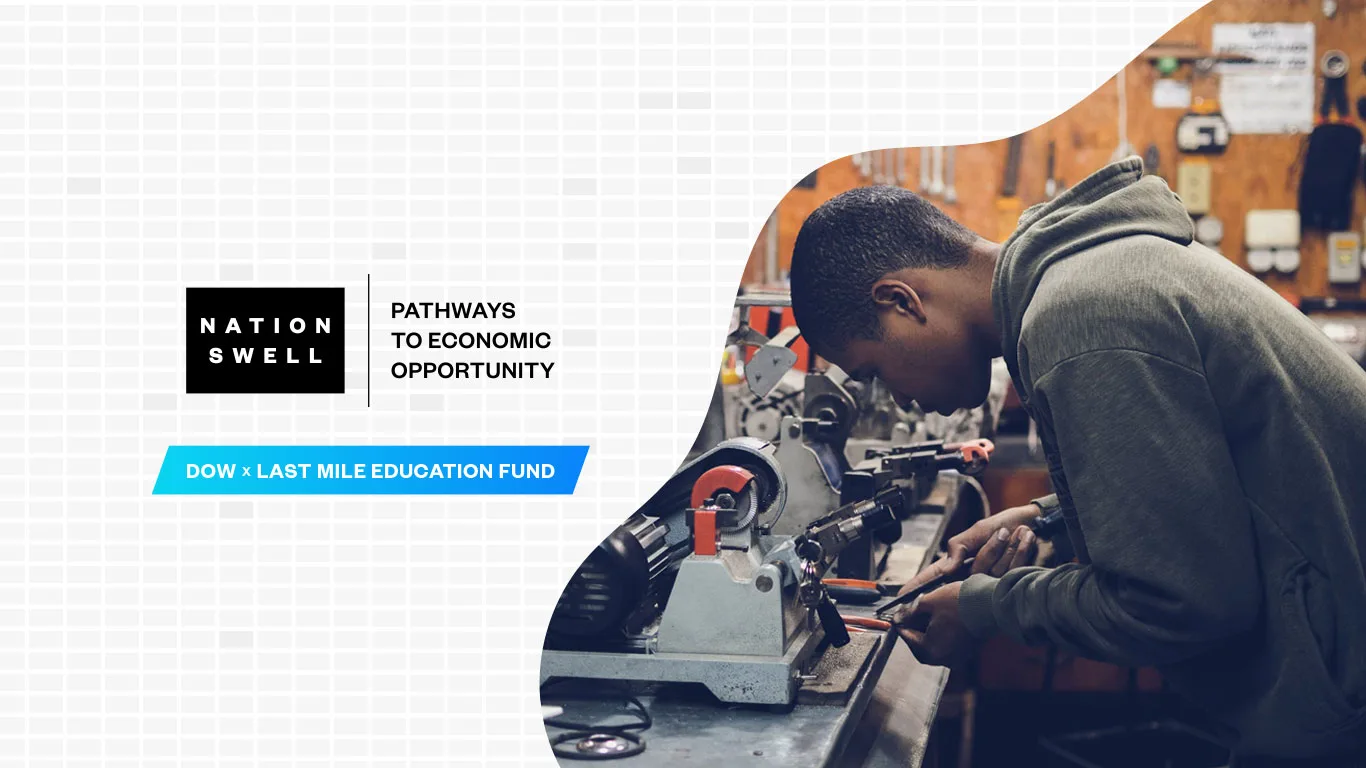In the Pathways to Economic Opportunity interview series, NationSwell is taking a closer look at how companies are pursuing remedies to disparities that exist in vulnerable communities that lack access to financial opportunity and prosperity. In spotlighting these partnerships, this series hopes to uncover the “secret sauce” that makes these solutions successful.
NationSwell recently sat down with Dennis Duquette, president and CEO of the MassMutual Foundation to discuss their newly-announced partnership with Opportunity Finance Network to launch the CDFI Innovation Initiative — a new effort designed to drive innovation, scale impact, and build new infrastructure for the Community Development Financial Institution (CDFI) industry.
Here’s what he had to say:
NationSwell: To start, what is the theory of change behind CDFIs — how do they work to expand economic access and provide financial stability in low-income communities?
Dennis Duquette, president and CEO of the MassMutual Foundation: CDFIs are financial institutions dedicated to delivering responsible, affordable lending to disinvested communities that are often underserved by other lenders and banks. By their very nature – certified by the Treasury Department to be prioritizing community development, serving underserved markets and providing wraparound support services – CDFIs seek to fund the needs and dreams of businesses, housing providers, schools, and community facilities that other financing providers deem to be too risky.
NationSwell: What challenges in the CDFI space is the MassMutual Foundation looking to help solve, and what positions the Foundation to do so?
Duquette, MMF: As it turns out, the biggest challenges facing the CDFI space have a lot to do with their own success – there’s been incredible growth in the visibility and recognition of CDFIs’ unique positioning in addressing community needs in the last few years.
The industry stepped into extraordinary visibility and expanded scale as it supported small businesses and economic recovery during the COVID-19 pandemic, including deploying more than $30B through the Paycheck Protection Program. The Barber of Little Rock, an Oscar-nominated short documentary that the MassMutual Foundation helped fund, highlights the work of a CDFI called People Trust and further contributes to public awareness of CDFIs as effective, community-centered providers of the financial capital and personalized support communities need to achieve financial health and resilience. And most recently, the EPA’s $27B Greenhouse Gas Reduction Fund (GGRF) includes one of the most significant new flows of capital to the CDFI space anticipated over the next six years.
This success and opportunity to scale brings many new challenges, as CDFIs often have limited internal resources and too often face major challenges in deploying capital to meet their communities’ needs due to infrastructure challenges. Solving these challenges will help both better utilize the existing capital available to CDFIs and help attract further investment in the industry by institutional investors.
NationSwell: What made Opportunity Finance Network (OFN) stand out as an ideal partner for the MassMutual Foundation?
Duquette, MMF: We always strive to make investments that can unlock opportunities that may otherwise not be fully leveraged – as we were just discussing, CDFIs stand at a major juncture of opportunity, and we want to ensure that it’s not missed. OFN is an ideal partner for us due to a number of reasons. They are themselves a CDFI and have been the leading CDFI support network for forty years, offering the critical capacity building, relationships, and loan capital that members across the country (over 430 member CDFIs and counting) need to fulfill their missions. Their role as convener and capacity builder for such a wide swath of CDFIs means that they have an incredible view into the challenges and opportunities facing the ecosystem. They also have a proven track record of executing visionary partnerships and, perhaps most importantly, share our view that collaboration and cooperation between funders and community partners is an important attribute for maximizing impact. Together, we aim to attract additional partners to the table to help fund the many innovations that this initiative will spur over the next five years.
NationSwell: What are the goals behind the MassMutual Foundation’s partnership and $25 million investment in OFN? How does the CDFI Innovation Initiative fit into your larger impact strategy as an organization?
Duquette, MMF: OFN and the MassMutual Foundation are in alignment that building and scaling resources and capacity of financial intermediaries like CDFIs is critical to achieving key shared outcomes, including income and wealth creation, financial resilience of individuals, and new jobs and small businesses nationwide. This partnership represents a natural evolution of our giving and is an outgrowth of all the things we’ve seen and learned through our local grantmaking focused on financial resilience across our recent focus communities (Springfield, Boston, Memphis). We’ve learned that the neighborhoods with the greatest need for affordable and accessible financial products and services are the very ones that most often lack them. More specifically, pathways to homeownership for first time homebuyers, small businesses loans & support, and access to quality jobs are consistently top needs expressed by residents and nonprofit leaders. This opportunity allows us to extend those lessons nationally to other communities and potentially engage like-minded funders to join us in this work.
NationSwell: What’s the special sauce behind the initiative – the novel or innovative elements that you’re most excited by?
Duquette, MMF: This initiative is structured to ensure that a strategic mix of voices, expertise, and resources are continually at the table to identify how to best innovate and invest in the infrastructure needed to help CDFIs grow, evolve, and scale into the future; with three core pillars designed to drive new strategies and innovations:
o Creating an Innovation Advisory Council with investments in thought leadership and data-driven insights into scalable innovations.
o Establishing an Innovation Center, an action tank that will take insights and promising solutions and seed them with capital and support.
o Launching an Innovation Fund, a blended capital pool that will help take innovative and promising solutions to scale each year.
NationSwell: What impact are you intending to achieve through this initiative, and what are your metrics for success? How will the initiative measure the long-term impact of innovations on underserved communities?
Duquette, MMF: The CDFI Innovation Initiative aligns with the MassMutual Foundation’s goals of building and promoting the use of critical networks, fostering financial health and resilience, fulfilling basic economic needs, and expanding employment opportunities for low-income households and communities. The initiative will help advance new systems, and develop solutions needed to support scale and impact in the following areas: capitalization innovations, new financing products, technology platform innovations, operational efficiencies, and data analytics and research. The complexity of this overall project means that we’ll be evaluating success on multiple levels, including increased growth rates in overall assets under management, financing closed from OFN members, number of housing units developed, small business loans closed, and jobs created or retained. We’ll also track specific outcomes for each individual innovation that is piloted.
NationSwell: How do you see this initiative evolving in the future? What’s your longer-term vision for the work with CDFIs?
Duquette, MMF: We have a long-standing history of supporting CDFIs in the cities where we live and work and we’re excited to grow that investment commitment with this initiative. We, along with OFN, are confident that the structure, approach, and impact of this initiative will really lay the groundwork and make clear the case for sustaining this initiative beyond the next five years.
NationSwell: Finally, do you have a call to action for leaders at peer organizations who have opportunities to help advance this work forward?
Duquette, MMF: We would absolutely love to connect with anyone at any peer organization who may have a shared interest in any element of this work and initiative. We think there is a very compelling case for collaborative funding here, and as I just mentioned, we see shared investment as part of the longer-term goal of sustaining and growing the impact of the CDFI Innovation Initiative long into the future!




